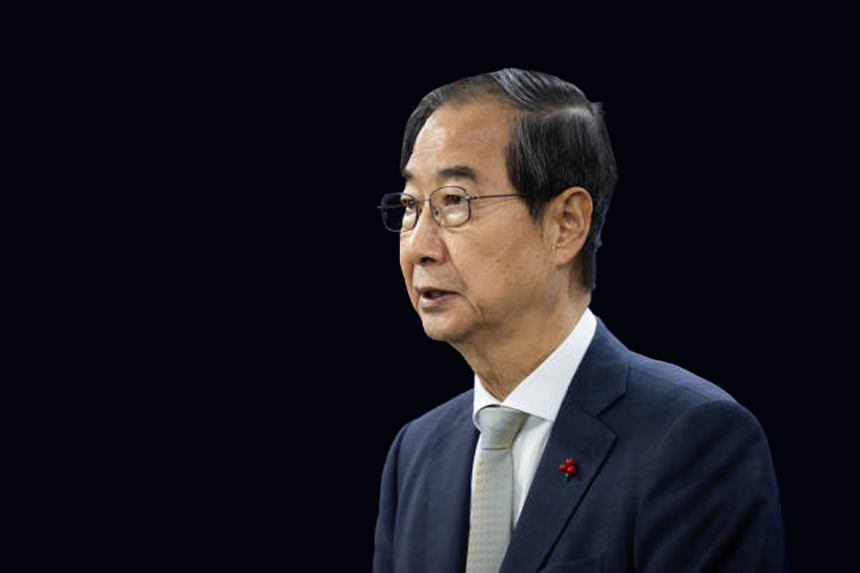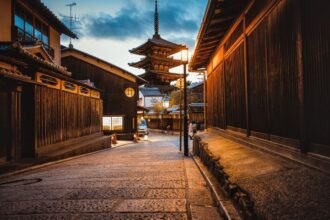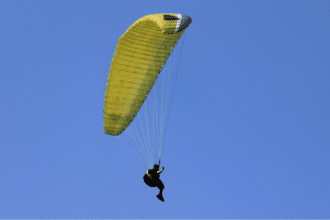South Korea’s political crisis continues to escalate as opposition lawmakers have filed a motion to impeach Prime Minister Han Duck-soo, less than two weeks after parliament voted to impeach President Yoon Suk Yeol. The impeachment motion comes after Han’s refusal to appoint constitutional court judges nominated by the Democratic Party (DP), the country’s largest opposition party, as well as his role in blocking several opposition-led bills.
- Why is the Opposition Accusing Han of Acting Against the Constitution?
- When Will the Impeachment Motion Against Han Be Voted On?
- Why Does the Opposition Accuse Han of ‘Buying Time’?
- Why Did Han Refuse to Appoint the Judges, and How Did the Opposition React?
- What Would Happen if the Impeachment Motion Succeeds?
- What is the Status of the Investigation Into Yoon’s Martial Law Attempt and Insurrection Allegations?
Why is the Opposition Accusing Han of Acting Against the Constitution?
Han’s refusal to appoint the three constitutional court judges nominated by the opposition-controlled National Assembly has sparked outrage. The DP’s floor leader strongly criticized Han, accusing him of undermining the democratic process. “Han has revealed himself to be an acting insurrectionist, not an acting president,” the floor leader stated.
The opposition has also accused Han of aiding President Yoon’s controversial attempt to declare martial law on December 3. Han, who is acting as the country’s caretaker president, had earlier apologized for his failure to block Yoon’s declaration, which was widely viewed as an overreach of presidential powers.
In addition to his handling of martial law, Han has vetoed several key opposition bills, including one that called for a special investigation into Yoon’s short-lived martial law declaration. The opposition claims that these actions have intensified the political conflict and further divided the country.
When Will the Impeachment Motion Against Han Be Voted On?
The impeachment motion against Han is expected to be put to a vote in the next 24 to 72 hours. In order for the motion to pass, 151 out of 300 Members of Parliament (MPs) must vote in favor. The DP currently holds 170 seats in parliament, and the opposition bloc, which includes smaller parties, has a combined total of 192 seats.
Opposition lawmakers had expected Han, acting as a caretaker president, to take a neutral stance and allow key bills to pass during this period of political transition. However, Han has refused to step aside, further deepening the political divide in the country. “We were hoping that Han would act as a facilitator of reconciliation, but instead, he has firmly opposed opposition initiatives, leading to a deepening of the crisis,” said the DP floor leader.
Why Does the Opposition Accuse Han of ‘Buying Time’?
On Tuesday, Han concluded a cabinet meeting without reviewing two opposition-sponsored bills that called for special counsel investigations into the martial law declaration and corruption allegations involving First Lady Kim Keon Hee. Han explained that he did not put the bills on the agenda in order to give both ruling and opposition parties more time to negotiate. However, the opposition criticized this move, accusing Han of deliberately delaying the process.
“Han is buying time and prolonging the insurrection,” the DP floor leader said, accusing the prime minister of using delay tactics to stifle the opposition’s efforts to investigate corruption and misconduct at the highest levels of government.
In a televised meeting, the floor leader warned Han that his legacy was on the line: “We’ve clearly warned that it’s totally up to Prime Minister Han Duck-soo whether he would go down in history as a disgraceful figure, as a puppet of rebellion plot leader Yoon Suk Yeol, or a public servant that has faithfully carried out the orders by the public.”
Why Did Han Refuse to Appoint the Judges, and How Did the Opposition React?
Han’s refusal to appoint the three constitutional court judges nominated by the opposition-led National Assembly has further fueled tensions. The National Assembly is currently deliberating on whether President Yoon should be impeached, and the opposition has argued that Han’s actions show his unwillingness to uphold the constitution. In response to this move, the DP floor leader declared, “It has become clear that Han Duck-soo is neither qualified nor willing to defend the constitution.” He also announced that the opposition would immediately table the impeachment bill.
Han’s ruling People Power Party (PPP) has rejected the opposition’s impeachment motion, arguing that the opposition’s threats are interfering with Han’s legitimate exercise of authority. A senior official from the prime minister’s office described the impeachment threat as “extremely regrettable” and emphasized that Han was simply performing his constitutional duties.
What Would Happen if the Impeachment Motion Succeeds?
If the impeachment motion succeeds, Han Duck-soo, who stepped in as acting president after Yoon was ousted earlier this month, will be removed from office. In this case, Finance Minister Choi Sang-mok would be next in line to serve as the caretaker president.
The ongoing political turmoil has reached a fever pitch, with protests erupting throughout the country calling for Yoon’s removal from office. The Seoul Constitutional Court is currently deliberating on whether Yoon should be permanently barred from holding office, with its first public hearing scheduled for later this week. Protesters have vowed to continue their calls for Yoon’s ouster during the hearings.
What is the Status of the Investigation Into Yoon’s Martial Law Attempt and Insurrection Allegations?
In addition to the impeachment proceedings, Yoon is under investigation for his failed attempt to impose martial law in early December. The investigation includes allegations of insurrection, and Yoon has refused to accept several summons delivered to him. Investigators have warned that an arrest warrant may be issued if Yoon continues to be uncooperative.
Several senior officials, including former Defense Minister Kim Yong-hyun, former Interior Minister Lee Sang-min, and Army Chief Park An-su, are also under investigation in connection with the martial law attempt. This further complicates the political landscape, as the country’s leadership faces significant challenges both from within the ruling government and the opposition.
As tensions rise and the impeachment motion looms, South Korea’s political future remains uncertain. With protests and legal challenges intensifying, it is unclear how the situation will unfold in the coming weeks.
Ko Wen-je Indicted on Corruption Charges, Political Future in Jeopardy








